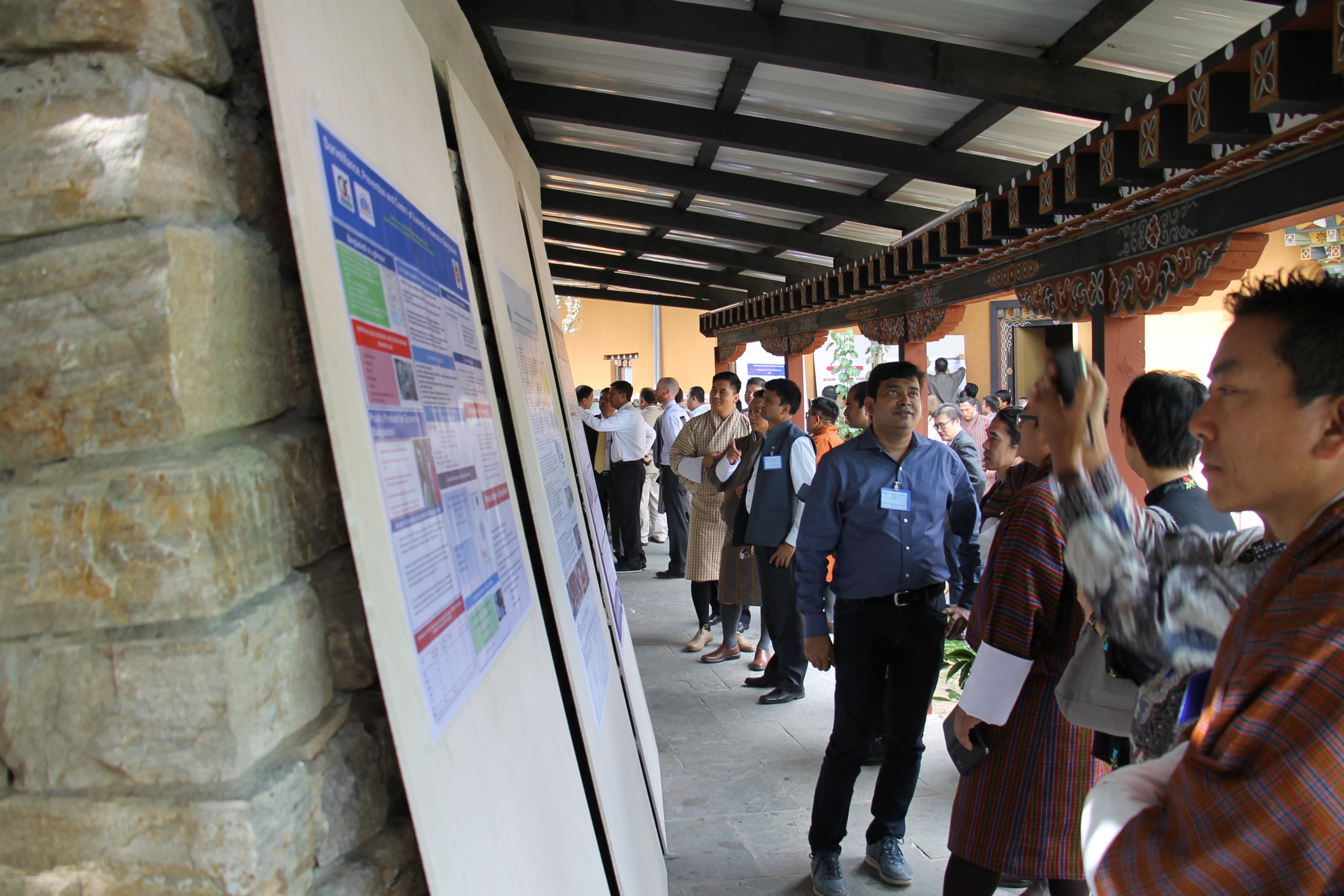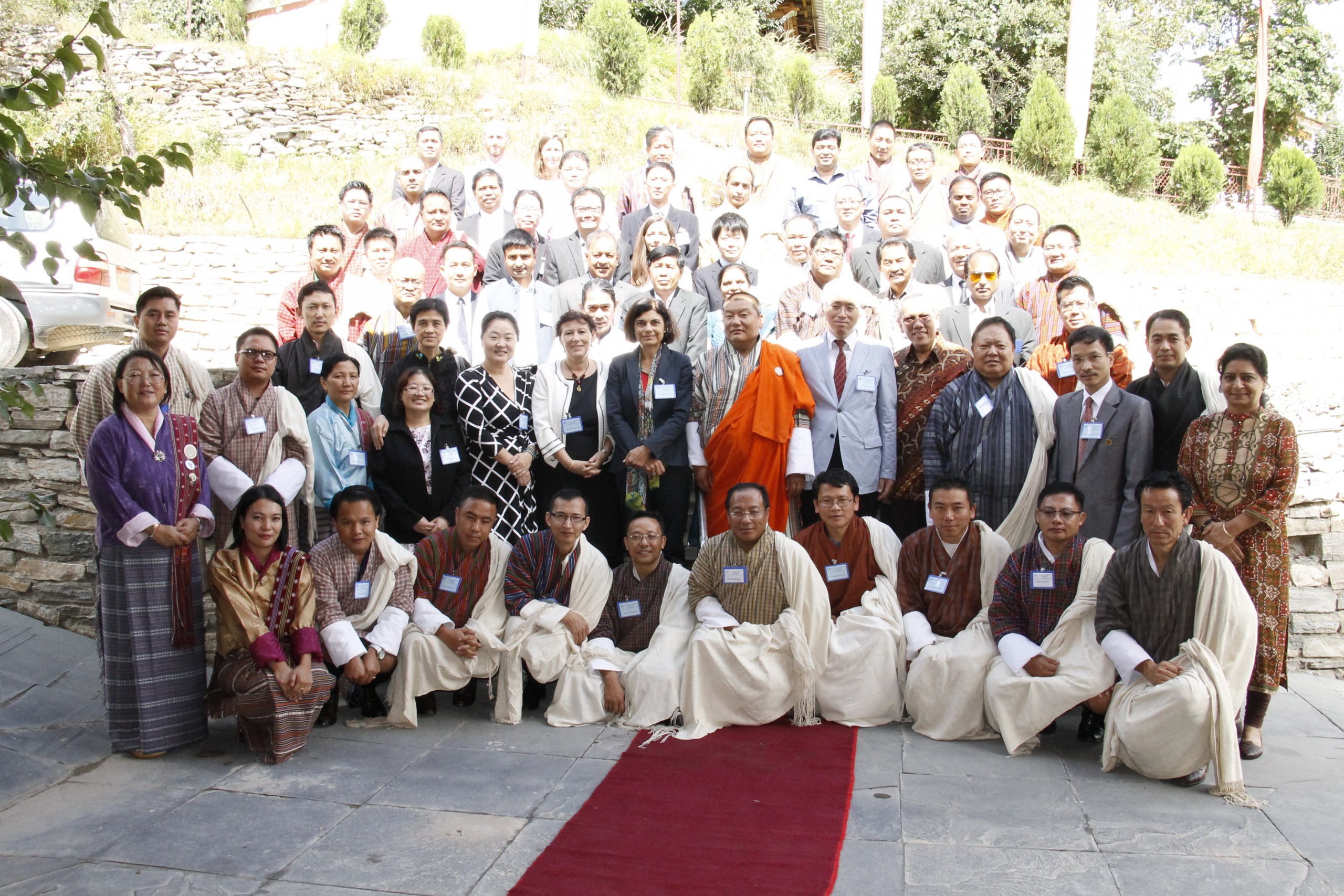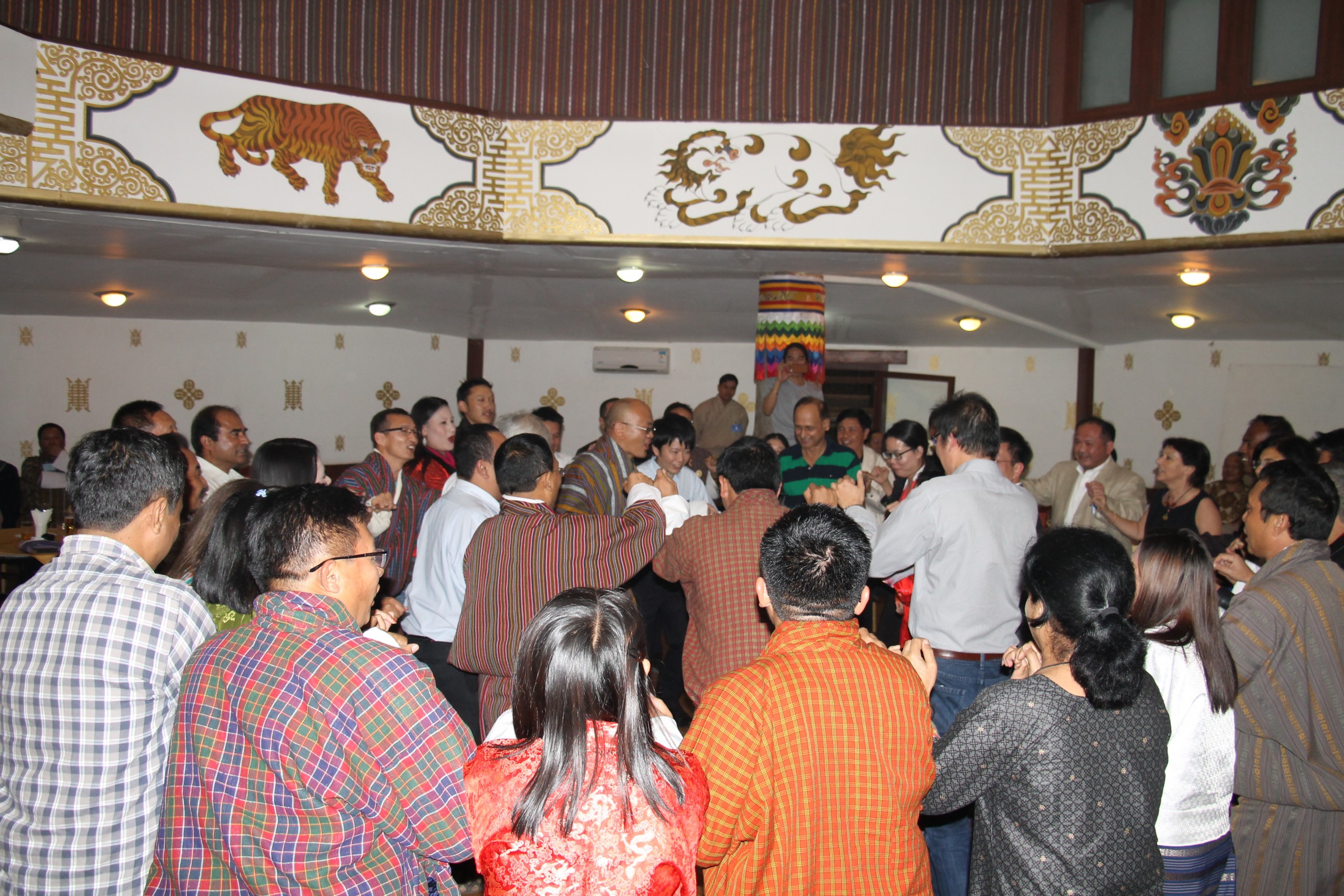As a part of the Tripartite coordination in the Asia-Pacific region, FAO/OIE/WHO supported the Royal Government of Bhutan to organise the ‘Asia-Pacific Workshop on Surveillance, Prevention and Control of Zoonotic Influenza in Paro, Bhutan on 29-31 August 2016. A total of 69 participants and observers attended the workshop (13 countries; Bangladesh, Bhutan, Cambodia, India, Indonesia, Japan, Democratic People’s Republic of Korea, Lao People’s Democratic Republic, Mongolia, Myanmar, Nepal, Thailand and Vietnam, development partners; USAID, and international organisations; FAO, OIE, WHO).
The general objective of the workshop was to strengthen surveillance, prevention and control of zoonotic influenza using the One Health approach. The specific objectives of the workshop were: 1) to provide an update on the situation and scientific information of zoonotic influenza viruses at global, regional and country levels; 2) to share knowledge and experiences on avian influenza surveillance, prevention and control; and 3) to provide recommendations for Member countries and international partner organisations for prevention and control of zoonotic influenza.
After the Inaugural Session, the workshop started with Scene setting, a Keynote presentation was delivered by Dr Frank Wong, OIE expert on HPAI on ‘Global and regional situation, and scientific updates on zoonotic influenza’. During his talk, Dr Wong pointed out the concerns on emergence of clade 2.3.4.4, awareness of the zoonotic potential of LPAI, predictability of next influenza pandemic and usefulness of OFFLU in detecting novel genotypes.
Next technical session was focused on sharing experiences and lesson learnt from participating countries. First part of this session was country presentations from 5 selected countries (Bangladesh, Cambodia, Bhutan, Vietnam and Thailand). Key discussion was; 1) LBM as sentinel detection site for novel AIVs and potential source of new strains, 2) importance of bio-security, and 3) One Health network could be a key to control zoonoses. While plenary discussion, it was suggested to improve bio-security and to include local strains in vaccine production. Also, concerns expressed on information sharing at the national and regional level as well as disease networks and joint research. Second part of this session was poster session moderated by Dr Ronello Abila, mainly on risk of zoonotic influenza and on One Health status. Various risk of zoonotic influenza were identified due to various reasons such as; 1) porous border/cross border poultry movement, 2) changing viral characteristics (evolution of multiple clades), 3) migratory birds, 4) needs for a robust surveillance system, 5) bio-security and mixed species farming, 6) resources and its sustenance, 7) difficult geography, and 8) vaccination of ducks along the borders. Likewise, regarding One Health status; 1) inadequate funds for effective implementation of activities under One Health, 2) legislative and policy issues, 3) difficult multi-sectoral coordination, 4) weak engagement of wildlife sector, 5) needs to improve joint investigation, research and analysis of bioinformatics, 6) real time data sharing, and 7) absence of platform for data sharing.
Following sessions were about the networking (e.g., Global Influenza Surveillance and Response System; GISRS, OFFLU) which stressed the importance of contributing avian influenza data to the bi-annual WHO vaccine composition meeting for pandemic preparedness through the OFFLU network.
Regarding the pandemic influenza preparedness and response, keynote presentation was delivered by Prof Hiroshi Kida, OIE expert for HPAI as well as WHO Collaborating Centre for Zoonoses on control of avian influenza and preparedness for pandemic influenza. He emphasised that stamping out was the most effective control measure for HPAI and vaccination should be applied in caution.
Existing tools in terms of risk assessment was shared by OIE and WHO. The participants were updated on the progress of joint risk assessment (JRA) and tool for influenza pandemic risk assessment (TIPRA).
Participants had opportunities to have group discussion; 1) surveillance, 2) laboratory diagnosis and data sharing, and 3) One Health approach. All participants were requested to write down any suggestion and recommendations on each topic and those notes were incorporated to the final meeting conclusions and recommendations.
Partners also shared their own activities/programme/plan for zoonotic influenza on partnership.
The meeting was closed with a field trip organised by the host country visiting the Royal Centre for Disease control and National Center for Animal Health in Thimphu.
The meetings went smoothly and completed successfully with fruitful discussion and recommendations. All attendees indicated their appreciation at having the opportunity to participate in this workshop.


